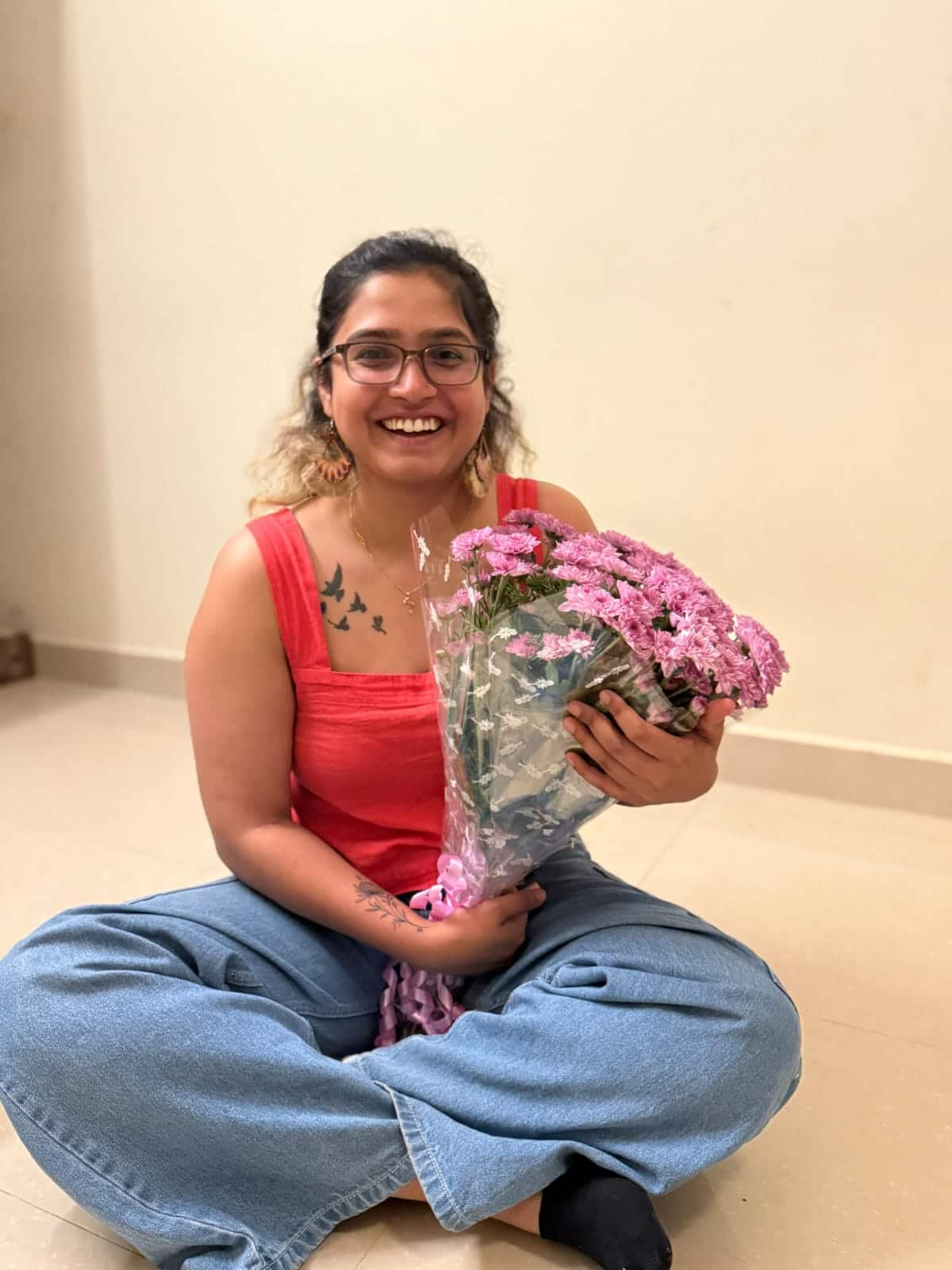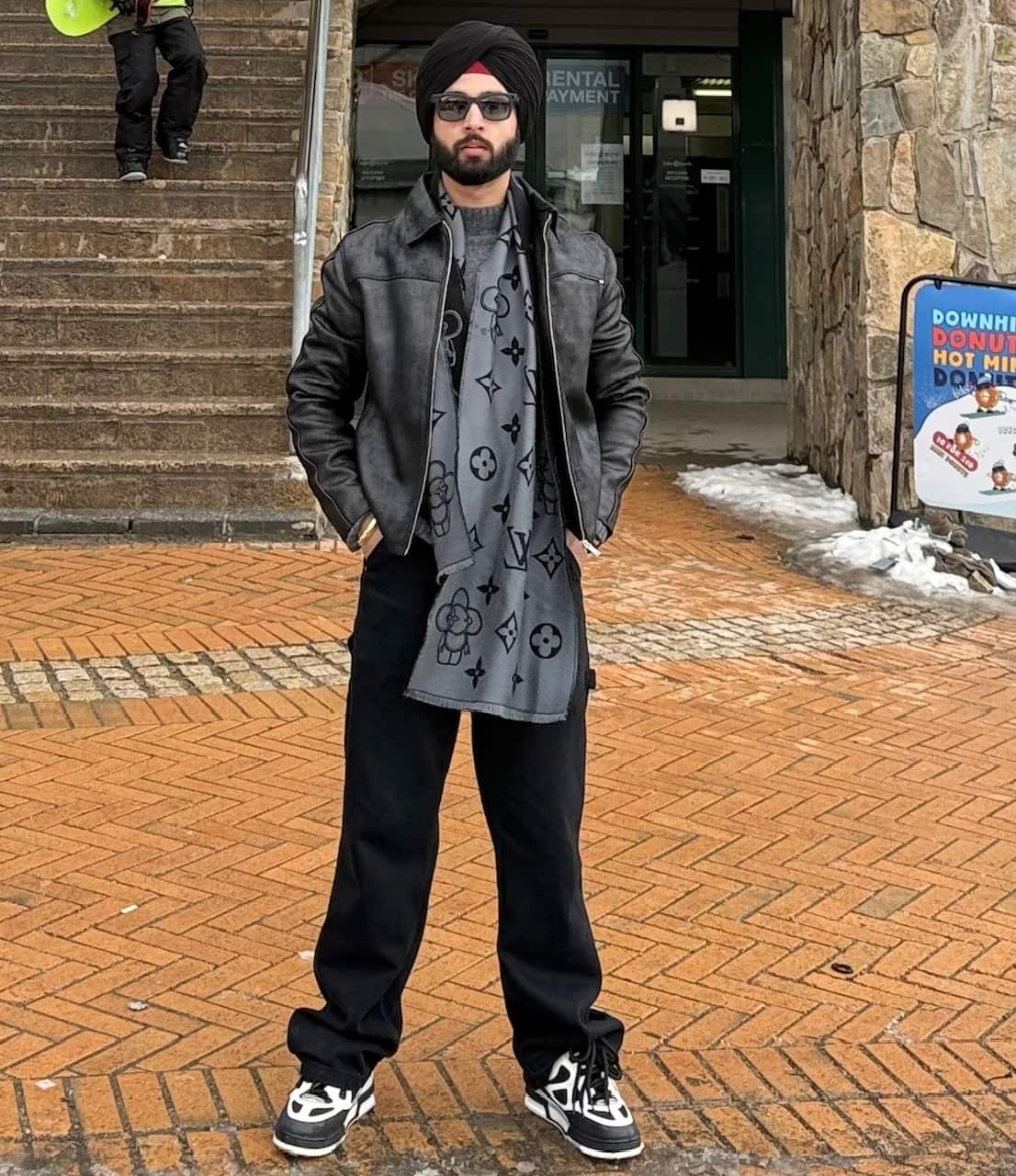This Sunday, Varada Nair won't leave her house. Neither will her housemates.
The University of Melbourne master's student, from southern India, is worried she could become a "target" of abuse during the 'March for Australia' protest, expected to take place on 31 August in her temporary home city.
"You do feel that when so many reels are being sent to you and people are telling you that you should stay away, you should not go out of the house on that day … It does create a worry in your head. What if something does happen?" she told The Feed.
"I live with three other international students and we are all collectively planning to not step out on that day."
Varada came to Australia to study publishing and communications because she believes the industry in Australia is "more independent and more vibrant" than that in her home country.

But now, ahead of the upcoming nationwide marches, she and her family are scared — as are many other international students and their families back home.
"It is not just a fear that is there in us, but it has, I think, spread around to our relatives and to our friends and family back home where they are worried about our safety now."
'We don't know what might happen'
Details about the controversial marches, to take place in major cities across the country on Sunday, are scant, including who the organisers are.
Turnout is also uncertain. The official Facebook event pages show projected attendance of hundreds in major capital cities — the largest being Brisbane, with more than 800 people registered as "attending" at the time of writing.
The official March for Australia Instagram account, created earlier this month, has distanced itself from extremist neo-Nazi figures, who have allegedly tried to claim the march as their own.
A March for Australia spokesperson told SBS News: "Attempts to hijack March For Australia for other issues, or to make it about any one group, are not in the spirit of the movement that we have taken custody of."
The stated objective of the organisers is for Australia to dramatically cut migration. Promotional material for the events state "no foreign flags".
Varada said she's already been a target of racism this week.
"There is someone who has come and starts throwing things at us, telling us to go back home, calling us out and telling us you are from India, you are from Philippines, you are from Thailand, you should go back to your own country and leave us alone."
'We don't know what might happen'
The federal government has spoken out against the marches, with Home Affairs Minister Tony Burke telling SBS News: "There is no place in our country for people who seek to divide and undermine our social cohesion".
Multicultural Affairs Minister Anne Aly said: "We stand with all Australians, no matter where they were born, against those who seek to divide us and who seek to intimidate migrant communities."
But support in Canberra has done little to eliminate fear at a community level, with international students such as Varada looking to online influencers in their community for information.
"There are reels and YouTube shorts that are going viral, explaining about the protests now in our own regional languages, which makes it more prominent, and that's why it is causing the waves and ripples," she said.
Indian influencers have been particularly vocal online, urging others in the diaspora to "stay inside".
Mandeep Singh has been posting videos to his 30,000 Instagram followers about the protests, which he claims send a "dangerous" anti-immigration message.
The Melbourne-based RMIT University student said he came to Australia because he heard "very positive things about Australia's high-quality education, good career opportunities and multicultural environment".
But he too, now feels nervous ahead of the marches.
"Especially on that day, people from immigrant communities will feel anxious, because we don’t know what might happen," he told The Feed.
His parents are also concerned.
"Parents always worry, and when they hear about protests targeting immigrants, naturally they feel uneasy about their children’s safety in another country."

Valuable yet vulnerable
Anti-immigration sentiment in Australia appears to be on the rise.
Polling by the Lowy Institute in June found 53 per cent of Australians think the number of migrants coming into the country each year is "too high", up 5 per cent from the previous year.
Meanwhile, 38 per cent said immigration levels were "about right", and only 7 per cent thought they were "too low".
However, Australians appear slightly less anti-immigration than other nationalities. A 2023 Ipsos survey showed 34 per cent of Australians felt the country would be stronger if immigration stopped, compared with a global average of 43 per cent.
Central to the rise in anti-immigration sentiment are common myths, including claims that migrants suppress wages, steal local jobs or inflate house prices.
Federation of Ethnic Communities' Councils of Australia chair Peter Doukas said international students have felt especially targeted in recent times.
During the 2025 federal election campaign, both parties proposed caps on international student enrolments in an apparent response to unverified claims the number of students was affecting housing availability and affordability.
Both parties dropped the cap proposals; however, the federal Labor government slowed visa processing to restrict international student placements to 270,000 in 2025. It has increased the number of placements to 295,000 in 2026.
"The international student community is already reeling from government policies ... they have been scapegoated for, among many things, the property prices and other economic issues, which they're not responsible for," Doukas told The Feed.
"Now they're exposed to this vitriol from these groups in public protests. This is yet another pressure that we need to deal with, and it's a great concern to us."
Australia's international students are highly vulnerable, he said, often living away from their families and their core communities.
They're also incredibly sizeable — and therefore crucial to Australia's economy.
A $51 billion injection
In the 2023-24 financial year, temporary students were the largest group of migrant arrivals at 207,000 people, according to Australian Bureau of Statistics data.
In the same period, international education contributed $51 billion to the Australian economy — $30.2 billion paid as goods and services and $20.6 billion paid as tuition fees. Education exports are Australia's fourth largest export behind iron ore, coal and natural gas, and the largest services export.
International students also spend more than they earn in Australia — twice as much as residents, make an important contribution to local labour markets, and have had only a marginal effect on the cost of housing and price inflation, according to a special bulletin released by the Reserve Bank of Australia in July.
Now [international students] are exposed to this vitriol from these groups in public protests. This is yet another pressure that we need to deal with.Federation of Ethnic Communities' Councils of Australia chair Peter Doukas
Phil Honeywood, CEO of the International Education Association of Australia, said the value of international students extends well beyond Australia's borders.
"Once they go back home … these young people do go back to their home countries and often they're the future politicians, business leaders and academics who then regard Australia as having given them their world-class qualification.
These are, if you like, ambassadors for Australia. So there's an incredible goodwill.
But Doukas said events like March for Australia protests dampen that goodwill and stain Australia's reputation.
"These incidents occurring around the country will cast a shadow over the brand of Australia as a safe place for international students to study," he said.
"We have a generation of students that's going to return to their home countries after these experiences with an impression of an insular and prejudiced Australia."

'We are here to contribute'
Varada agrees that such protests "might reduce the amount of people who end up coming here".
"I don't think you should blame a whole group of people for coming here and trying to build a life for themselves along with you … [but] I think immigration or immigrants are kind of like scapegoats right now."
Doukas wants to extend a message to all international students that they are welcome.
"You are part of our community, and you have something to contribute to our education system, and we hope to make you ambassadors of Australia to your home countries when your experience of education has finished."
Meanwhile, Mandeep is finding solace in spreading hope to the international student community.
"Remember that for every negative person, there are many positive ones who support diversity and inclusion. That shows the real spirit of immigrants," he said.
"We are here to contribute, not to take away."
This story was produced in collaboration with SBS Hindi.
Through award winning storytelling, The Feed continues to break new ground with its compelling mix of current affairs, comedy, profiles and investigations. See Different. Know Better. Laugh Harder. Read more about The Feed
Have a story or comment? Contact Us


